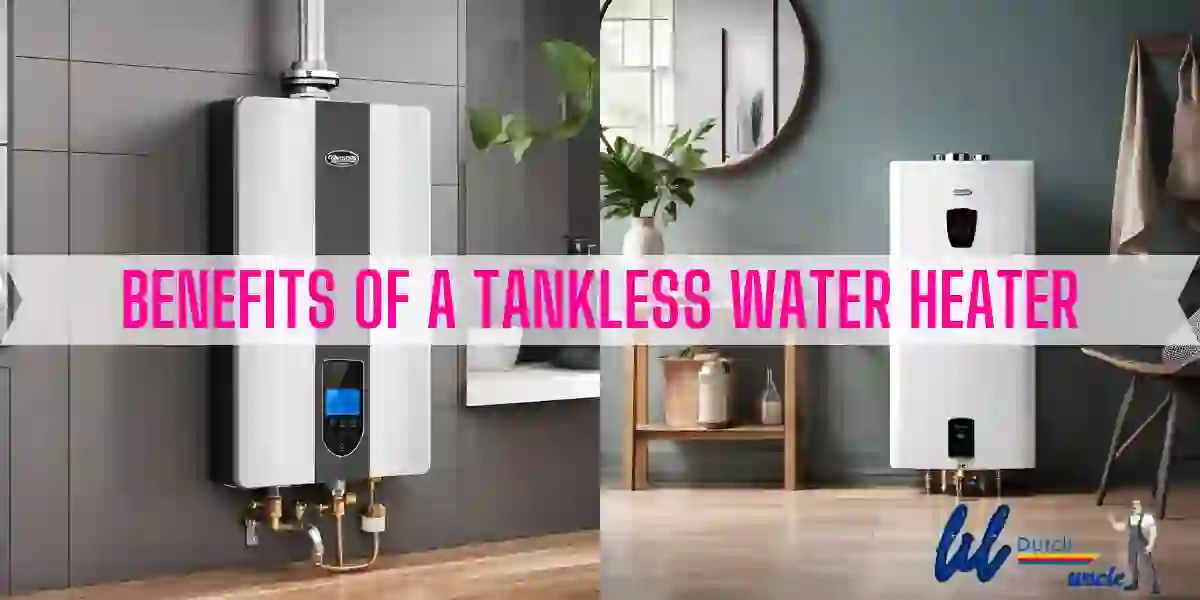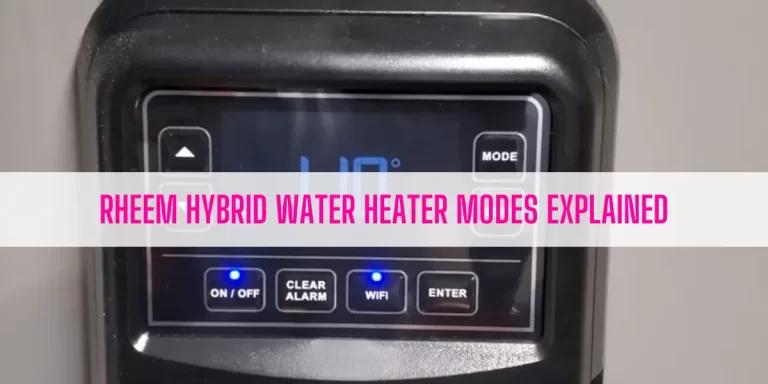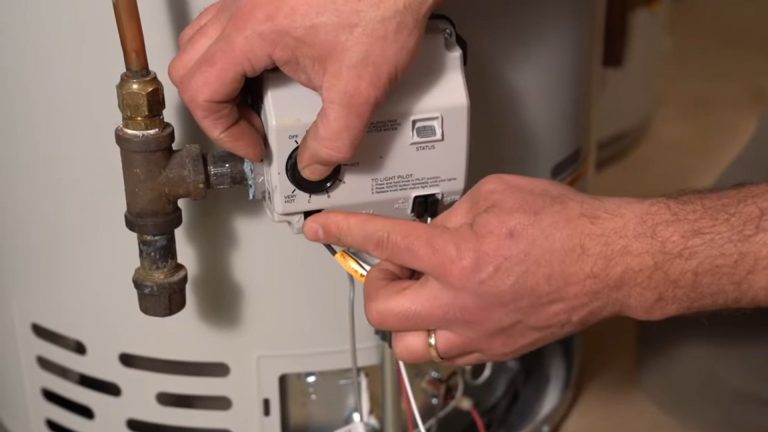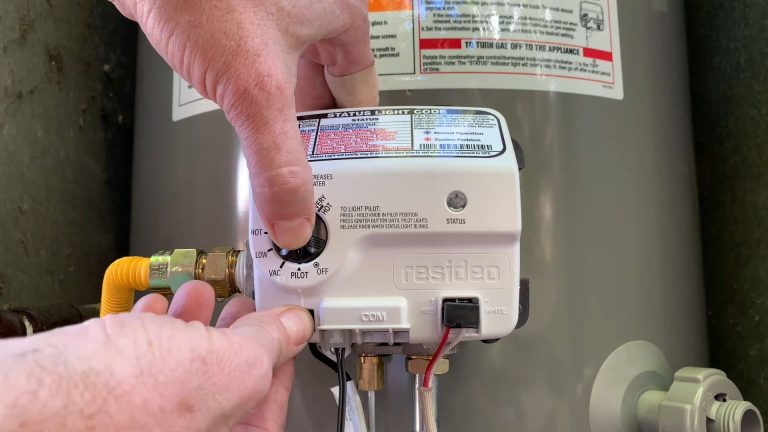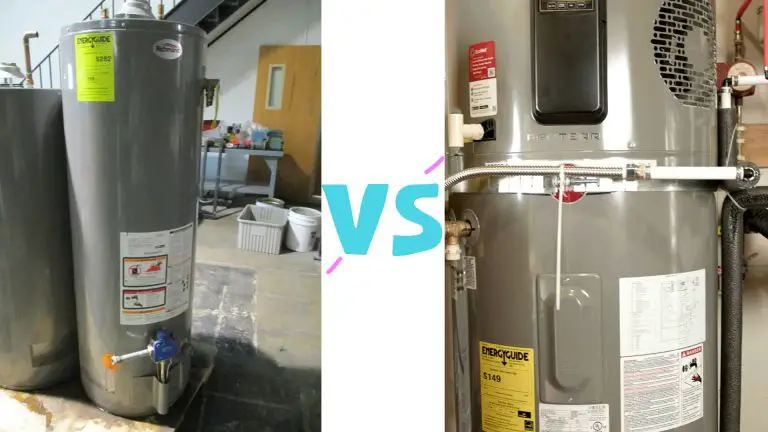Benefits of A Tankless Water Heater
Energy efficiency is not the only consideration homeowners consider when it comes to upgrading the water heater to a tankless water heater. There are more pros that convince owners like you to get a tankless unit. Today, I will walk you through 8 more benefits of a tankless water heater offer. Let’s scroll down.
What Are the Benefits of A Tankless Water Heater?
Consider these nine advantages of a tankless water heater to get a tankless water heater for your home.
1. Energy Efficiency
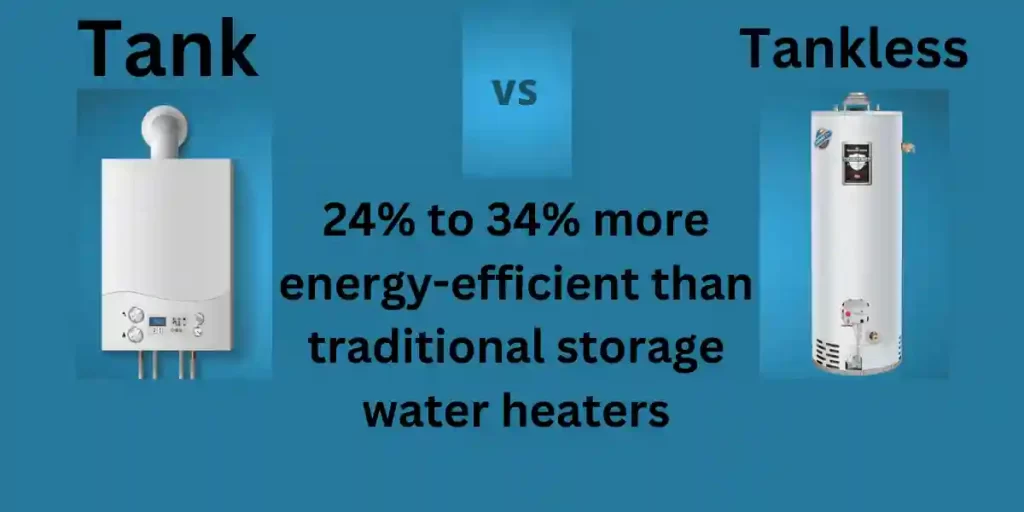
Heat water on demand! Like your traditional tank water heater, tankless water heaters never heat water continually and store a large volume of water. As a result, waste of energy will be minimal and save energy or utility bills.
According to the Department of Energy, a tankless or on-demand water heater will be 24% to 34% more energy-efficient than your traditional storage water heater if your family uses 41 gallons of water or less per day. It can be 8%-14% energy-efficient if the daily water usage demand is around 86 gallons.
2. Endless Hot Water

Tankless water heaters never store water like your old tank water heater.
When you turn on a hot water faucet, cold water flows through the heat exchangers, and the heat exchangers heat the water. As a result, tankless water never runs out of water and delivers unlimited hot water.
In short, a tankless water heating system heats water and delivers it whenever you call it for hot water.
3. Space-Saving Design
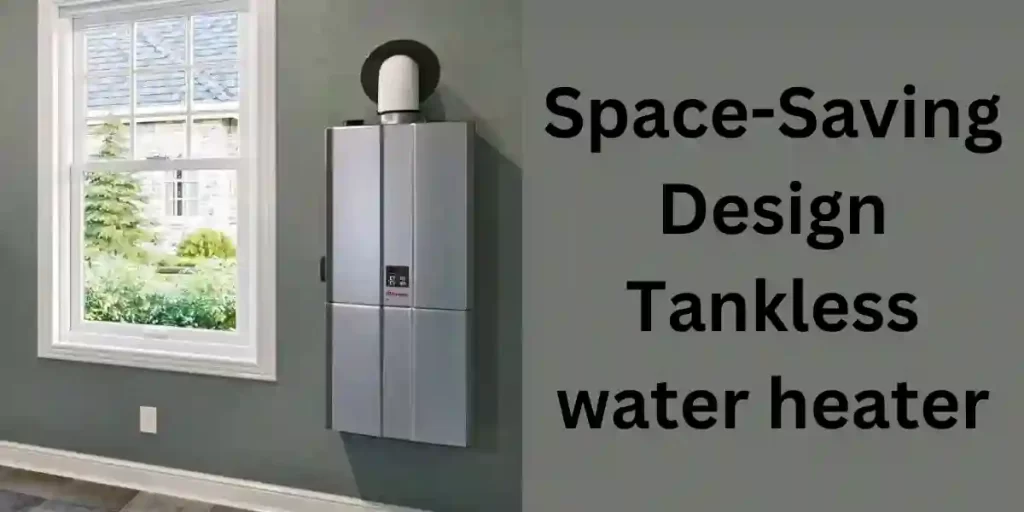
The compact design of a tankless water heater makes it a go-to choice for homeowners. It requires only a 4-foot clearance from the side or below a door or window that opens. If you install it above the door or window, you need only 12 inches of clearance.
On the other hand, the floor space requirement is 4 feet. Apart from this, you should have enough space to accommodate the height of the water heater.
To sum up, a tankless water heater requires 80% less space than your conventional tank water heater.
4. Longer Lifespan
The Department of Energy reports that most tankless water heaters can last more than 20 years. Maintaining proper maintenance, you can add another 5 or 10 years to its total lifespan. Turns out, the tankless unit has replaceable parts, which help extend its longevity.
However, I recommend you have a tankless water heater with stainless heat exchangers. It’s because the stainless heat exchangers can fight off hard water.
I advise you to perform monthly and annual maintenance to let the unit last & operate like a champ.
5. Reduced Standby Heat Loss
Unlike storage tank water heaters, tankless ones don’t require heating a large volume of tank water. It heats water when you turn on a hot water fixture.
On the other hand, a tank water heater heats a large volume of water in the tank. It doesn’t only waste energy but also the heat.
But the tankless water heater avoids the standby heat loss by heating the water immediately.
6. Lower Maintenance
Low maintenance is another benefit you can enjoy if you use a tankless water heater for your home. Compared to your traditional tank water heater, it’s less susceptible to corrosion or sediment buildup.
Generally, the manufacturer recommends you flush the tankless water heater once a year. But if your supply water contains more minerals, you should flush the unit every six years.
After every two or three months, I recommend you clean the cold water inlet filter.
7. Environmental Friendliness
From the perspective of the physical product and its functioning, tankless water heaters are more environmentally friendly than their counterparts- tank water heaters.
Let me compare the tankless unit to the tank one from the sense of physical product design. Like the traditional tank water heaters, the tankless unit doesn’t store water actively. It means the tankless unit is less prone to corrosion and sediment buildups.
As a result, tankless water heaters have a longer lifespan than their alternative option. It means they won’t go to the landfill as fast, making the tankless unit more environmentally friendly.
Second, the tankless water heater is also environmentally friendly compared to the tank unit based on functionality.
A tankless unit only heats water when you need it the most. On the other hand, a tank-type water heater heats or reheats the water in the tank for a long time. It means the tank water heater uses more energy or emits a lot of carbon footprints to the environment.
In short, a tankless water heater is more environmentally friendly than a tank water heater.
8. Reduced Risk Of Water Damage
A usual tank water heater issue that can throw a wrench into work is a leaky tank. Due to sediment buildup, the tank gets corroded and leaks water. A leaking tank will cause water damage or can damage the property.
But a tankless water heater has no tank to store water. It means you don’t need to worry about water damage if you have a tankless water heater.
9. Incentives and Rebates
Government agencies or utility companies offer incentives, rebates, or tax credits to encourage consumers to install energy-efficient tankless water heaters. As a result, it will help offset the initial purchasing and installation costs.
FAQs
How does a tankless water heater save energy and reduce utility bills?
A tankless water heater heats water when you turn on a hot faucet.
But a tank-type water heater heats the water in the tank for a long time. If the water temperature drops, it reheats the water to reach the water temperature to a certain level. In other words, it heats and reheats the water.
In short, a tankless water heater reduces the standby heat loss and consumes less energy than the tank water heaters, making it more energy-efficient.
Are there any disadvantages or limitations to using a tankless water heater?
Yes, a tankless water heater has a few downsides as well. The upfront cost of a tankless unit is high. It may not meet the demand of a large house that requires constant hot water. Besides, a gas-powered tankless water heater requires proper venting and larger gas lines.
Can I retrofit a tankless water heater in place of a traditional tank water heater?
Yes, you can retrofit a tankless water heater in place of a traditional tank unit. However, I recommend contacting a certified technician to retrofit the unit properly.
End-Note
Despite these benefits, a tankless water heater has some limitations as well. Higher upfront costs and failing to meet your higher water demands are the cons of a tankless unit.
I recommend you assess your requirements and consider these factors to decide whether a tankless unit is the right choice.
If needed, consult with a professional.
Read Also :

Sohel Rana is an expert writer (Of course, the owner and founder of this blog) on plumbing, HVAC, and appliance repair & troubleshooting. Since 2020, he has written on these specific topics, though his writing journey began in 2018.

